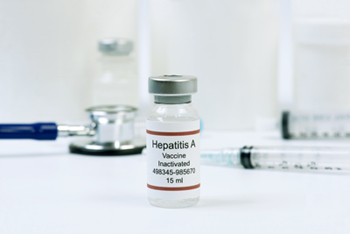West Virginia health officials are reporting an increase in the number of confirmed cases of acute hepatitis A virus since March.

As of May 18, 106 cases (98 confirmed, 3 probable, 5 suspect) have been seen. Three-quarters of the cases required hospitalization and no deaths have been reported.
Most (87%) of those cases in have occurred in Kanawha (59) and Putnam (28) counties, with Cabell at 10, and Boone, Jackson, Lincoln, Wayne and Wyoming counties having less than fivPe cases each.
This increase in cases has primarily been among IV and non-IV drug users, homeless or transient individuals, those who have been recently incarcerated, and are co-infected with hepatitis C. Viral sequencing has linked several cases with outbreaks in Kentucky and California.
Hepatitis A virus is excreted from the body through stool. It can live on surfaces for months. Individuals can get Hepatitis A from close personal contact with someone who has the illness, or from encountering food or surfaces and unknowingly ingesting even microscopic particles of contaminated human waste.

Image/National Institute of Diabetes and Digestive and Kidney Diseases
Hepatitis A can cause liver inflammation. A person with Hepatitis A is considered contagious for two weeks before and one week after symptom onset. Most adults have symptoms that include yellowing of the skin or eyes, right upper side abdominal pain, nausea, vomiting or diarrhea. Persons who have the illness may also experience loss of appetite, fatigue, dark (tea-colored) urine, light-colored stool, headache or fever. In some instances, deaths have been reported.
People may experience mild to severe symptoms. Once the acute phase of the illness passes, a person becomes immune. People with underlying health conditions, particularly those with chronic liver diseases such as alcoholic cirrhosis, Hepatitis B and Hepatitis C may require hospitalization.
Persons experiencing hepatitis symptoms should notify their health care providers. Seek immediate medical attention if you suspect you have been in contact with someone who may have Hepatitis A.
Getting vaccinated is the best way to prevent Hepatitis A infection. Children are now routinely vaccinated for Hepatitis A. A two-dose Hepatitis A vaccine series is available for adults. Contact the health department to schedule a post-exposure vaccination. One dose of Hepatitis A vaccine given within two weeks of exposure can help prevent contacts from becoming ill.
- University of Washington: Rabid bat bites one, others may have been exposed
- Japan reports scores of measles cases in recent weeks
- Ebola: Lehigh University researchers’ framework tracks the ecological drivers of bat migration patterns to predict the next outbreak
- Kenya certified as Guinea Worm free, Maternal and neonatal tetanus is next
- Thailand reports 9th human rabies fatality
- FDA issues warning to Utah company over unapproved Lyme disease product
- Ebola: Outbreak update, Vaccinations and What about unintentional spread by travelers?



4 thoughts on “West Virginia hepatitis A outbreak tops 100 cases”